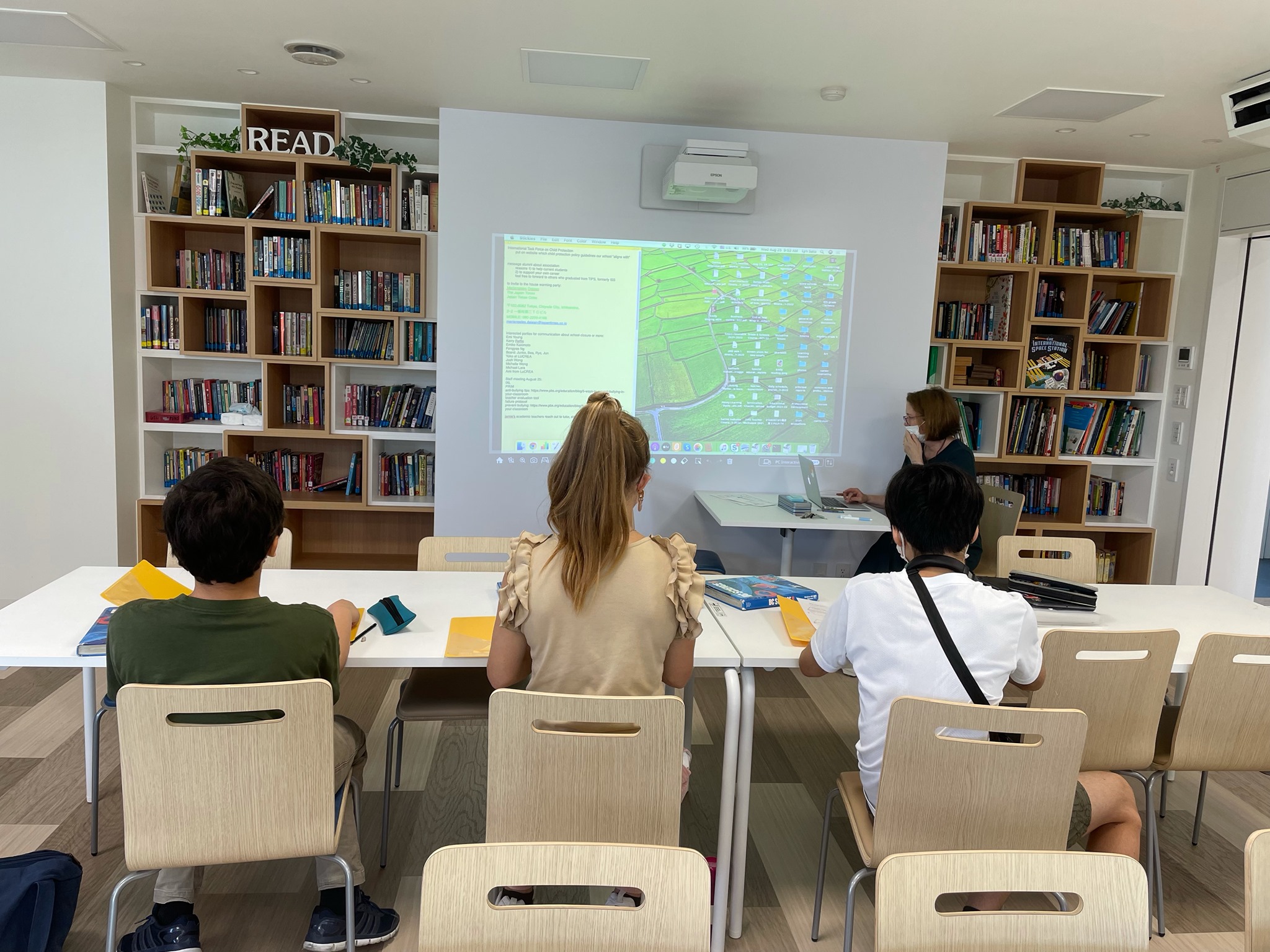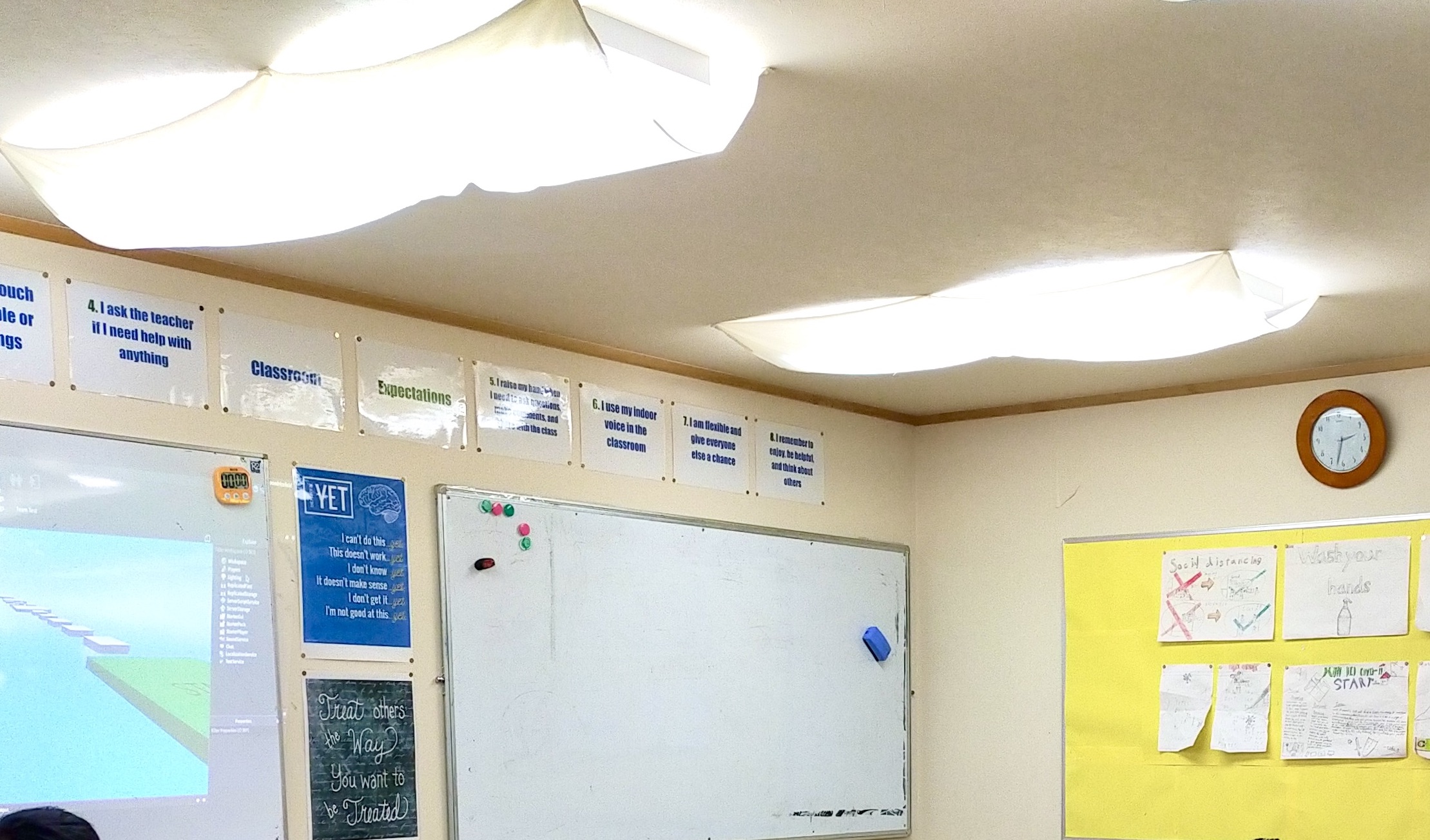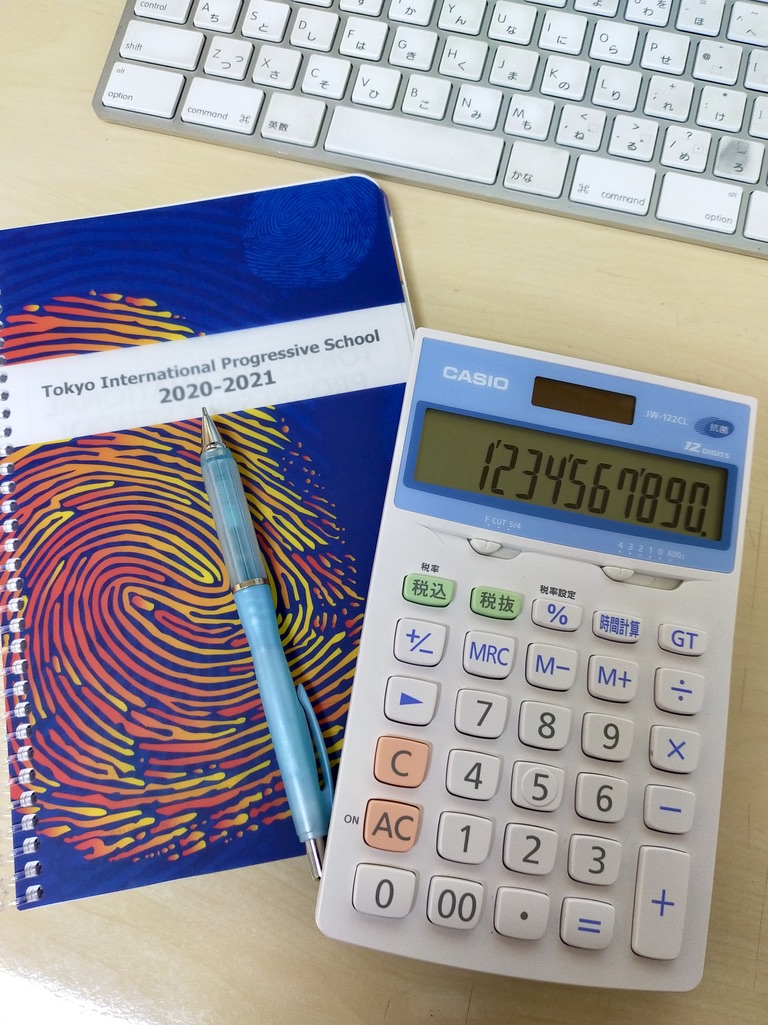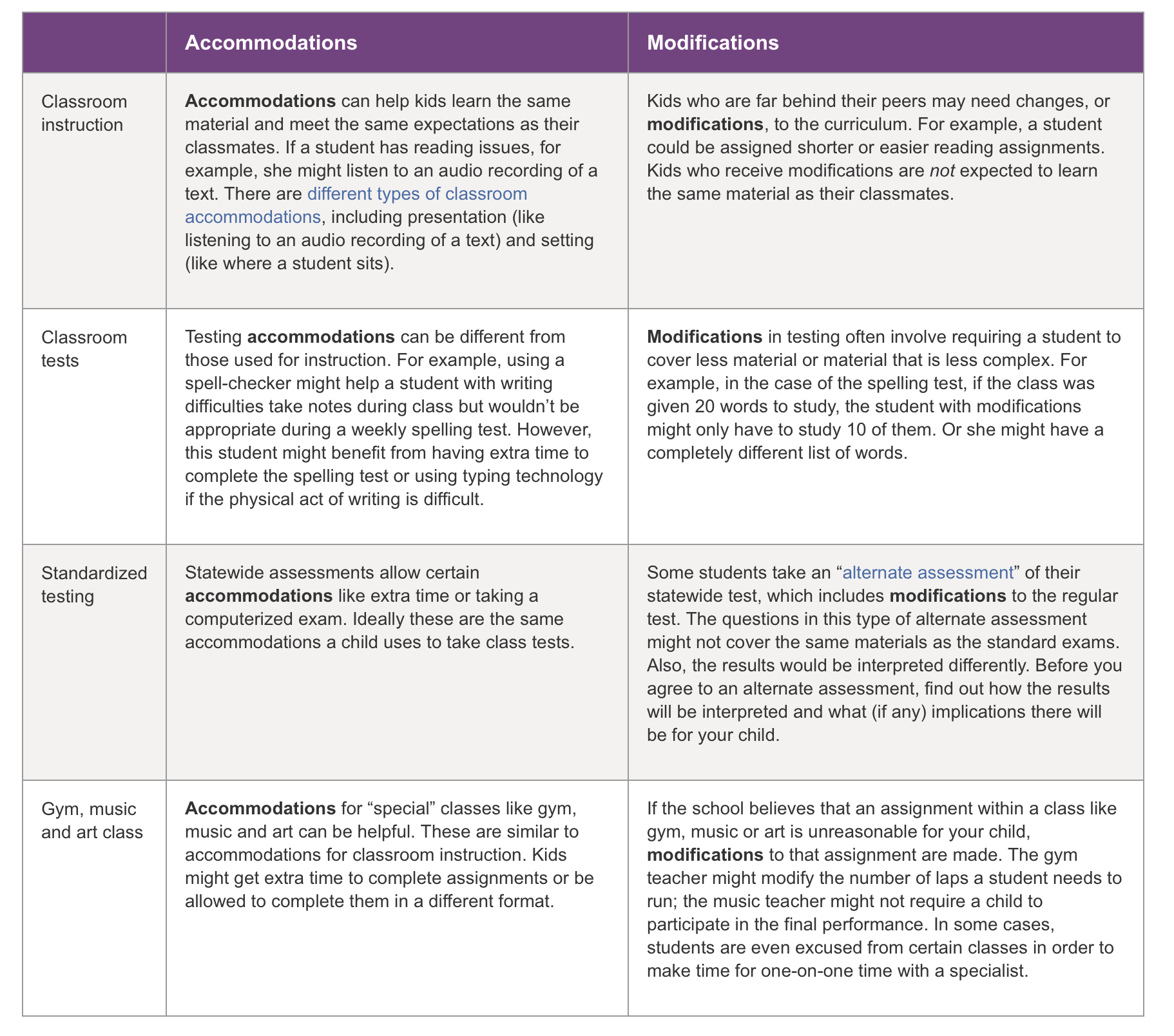TIPS offers a wide range of accommodations to students. Formal accommodations are assigned as recommended by an official evaluation. Informal accommodations can be provided as recommended by teacher observations. These are reviewed quarterly.
Instructional accommodations allow a student to:
Listen to audio recordings instead of reading the text
Learn content from audiobooks, movies, videos and digital media instead of reading print versions
Work with fewer items per page or line and/or materials in a larger print size
Hear instructions orally
Be given an outline of a lesson
Use visual presentations of verbal material, such as word webs and visual organizers
Be given a written list of instructions

English for academic purposes accommodations allow a student to:
Be exempt from spelling errors in papers
Extra time on English based work
Assistance on answering questions
Scheduling accommodations allow a student to:
Take more time to complete a project, as a formal accommodation.
Take a test in several timed sessions or over several days
Take a test at a specific time of day
Setting accommodations allow a student to:
Work or take a test in a different setting, such as a quiet room with few distractions
Sit where he learns best (for example, near the teacher)
Use special lighting or acoustics
Take a test in a small group setting
Use sensory tools such as an exercise band that can be looped around a chair’s legs (so fidgety kids can kick it and quietly get their energy out)

Response accommodations allow a student to:
Give responses to an exam in a verbal form, as a formal accommodation
Dictate answers to a scribe
Capture responses on an audio recorder
Use a spelling dictionary or electronic spell-checker
Use a word processor to type notes or give responses in class
Use a calculator or table of “math facts”
Scribe for exams.
Complete alternate projects or assignments.

Timing accommodations allow a student to:
Take more time to complete a task or a test
Have extra time to process oral information and directions
Take frequent breaks, such as after completing a task
Organization skills accommodations allow a student to:
Use an alarm to help with time management
Mark texts with a highlighter
Have help coordinating assignments in a book or planner

Formal accommodations allow a student to:
Complete fewer or different homework problems than peers, as a formal accommodation.
Write shorter papers
Answer fewer or different test questions
For students on the Certificate of Completion Program, the following modifications are accessible:
Curriculum modifications allow a student to:
Learn different material (such as continuing to work on multiplication while classmates move on to fractions)
Get graded or assessed using a different standard than the one for classmates
Be excused from particular projects
An explanation of the difference between accommodations and modifications is found below. This is taken from Understood.org

